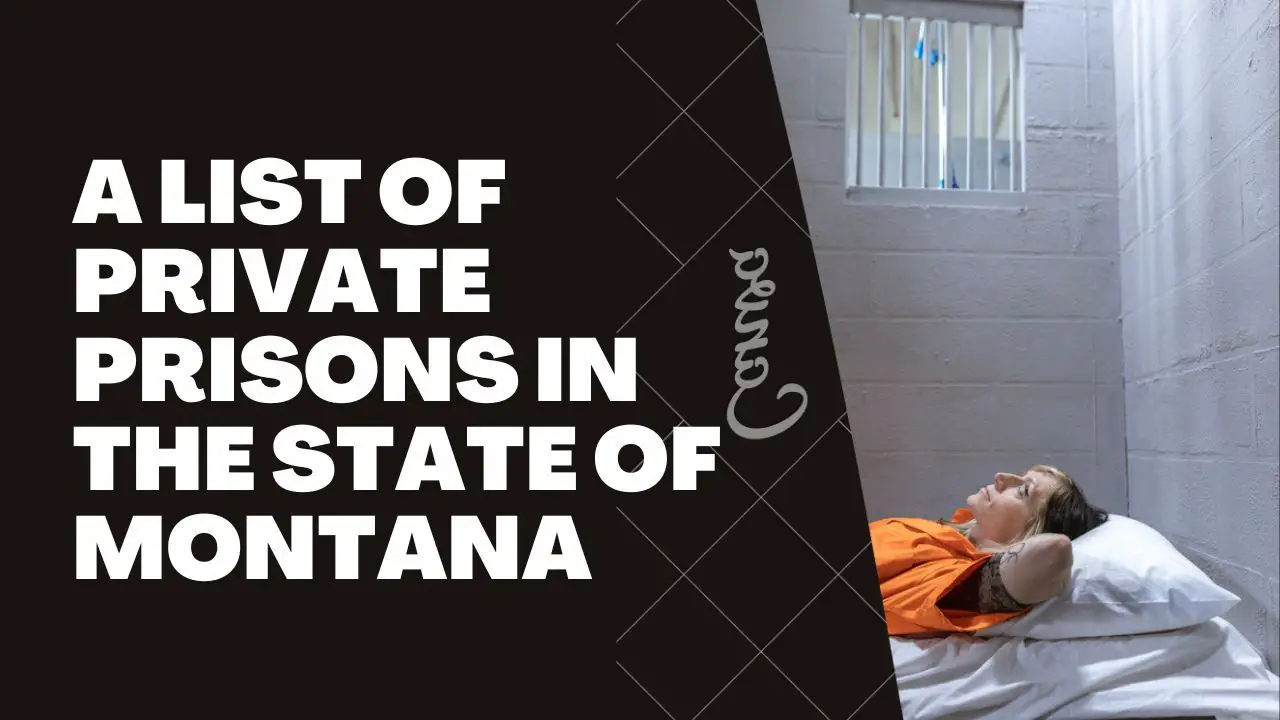A List of Private Prisons in The State of Montana
This article brings you everything you want to know about private prisons in the state of Montana.

Montana is a beautiful state in the Mountain West division of the Western US. It is the fourth-largest state in the United States by area, known for its numerous mountain ranges in the East, while Eastern Montana has badlands and western prairie terrain. However, the state is also known for its private prisons.
The private prison population in Montana spiked by 50 percent from 2000 to 2015. This article brings you a list of private prisons in the state of Montana and related statistics.
Private Prison Population in Montana
Reports show that Montana has the second-largest private prison population in the US. Studies show that the private prison population in the state is in the top 40 percent of offenders in the US.
Nicole Porter, director of advocacy for The Sentencing Project, says, "Private prison companies don't pay their guards and correctional staff the same rate that public prisons do. They also don't invest in the training and professional development resources that public prisons do, and are required to do so in order to get the accreditation."
She added, "State lawmakers and correctional officials, and the people following corrections trends, should be aware that other states this year have phased out contracts, despite the national shift from the Obama administration to the current administration."
They also mention that the prison population has decreased 8 percent since 2012, when the private prisons had the peak population.
In 2016, President Barack Obama phased out private prisons at the federal level, which Attorney General Jeff Sessions reversed later.
Read A List of Private Prisons in The State of Nebraska
Montana Prison Stats 2019
- Jails in Montana: 37
- Jail population: 2,520
- Prisons in Montana: 5
- Prison population: 4,723
- Montana prison staff: 1400 employees
- Prison budget: $209,790,390
- Montana's community corrections population under probation: 9,589
- Montana's community corrections population under parole: 1,533
- Incarceration rate for 100,000 population: 440
- Violent crime rate for 100,000 population: 404
- Property crime rate for 100,000 population: 2,193
Montana Prison Stats 2017
- Jails in Montana: 37
- Prisons in Montana: 5
- Prison population: 3,681
- Montana prison staff: 1400 employees
- Prison budget: $198 million
- Montana's community corrections population under probation: 9,487
- Montana's community corrections population under parole: 1,203
- Incarceration rate for 100,000 population: 350
- Violent crime rate for 100,000 population: 377
- Property crime rate for 100,000 population: 2,591
Read A list of Private Prisons in The State of Nevada
A List of Private Prisons in the State of Montana
Since 2000, many states have banned private prisons, and many have a small number of private correctional facilities now. Thus, there is no long list of private prisons in the state of Montana, as only one private facility operates and keeps prisons in the state currently.
The Crossroads Correctional Facility near Shelby is the only private prison in Montana.
CoreCivic, the largest private corrections company in the country, with facilities in other states, runs it. Many prisons from Montana have also been moved to CoreCivic’s private prisons in other states.
Two Rivers Regional Detention Facility Closing
Montana has been known for its private prison population, but many prisons have been closed in the past. Surprisingly, it is due to a lack of prisoners, and facilities such as the Two Rivers Regional Detention Facility in Hardin, Montana, have had difficulty filling the beds.
The facility was opened in 2007 to boost the area's economy, but it could not cover interest payments to build the $27 million facility. The facility was vacant for seven years until TRA and Emerald Correctional Management got into a contract in 2014. However, Emerald removed itself from its involvement with the facility in April 2016.
The facility had only 150 prisoners in 2015; they needed at least 200 inmates to full TRA’s interest payments while they could make a profit only over 350 prisoners. However, TRA executive director Jeffrey S. McDowell mentioned, “We could fill that place tomorrow if Yellowstone County, for example, sent their excess inmates over.”
The efforts were made to bring inmates from Yellowstone County, which already had 500 prisoners when the capacity was only 286.
While the state considered this transfer of inmates between the prisons, Yellowstone County Sheriff Mike Linder opposed the proposal after visiting the facility. He mentioned that this would cost Yellowstone $2.2 million per year.
Private Prisons in Montana and #barriers2innocence
#barriers2innocence is a movement that works towards systemic racism to fight racism against Black, Indigenous, and People of Color (BIPOC). They believe that justice is delayed based on racial and ethnic reasons.
Working on the BIPOC stats and situation in Montana, #barriers2innocence worked on various aspects, coming with different perspectives from people.
SK Rossi, the Director of Advocacy and Policy for the ACLU of Montana, said, “How that shows up, specifically in Montana, is that the Department of Corrections for the State of Montana essentially contracts out their responsibility for incarcerating people to a private, for-profit corporation.”
Montana’s private prison is also thought to be among the less-suitable spaces for inmates due to increased violence among prisoners and forced labor such as making furniture. However, Governor Steve Bullock renewed their contract when he could end it.
SK Rossi also did not appreciate the decision and mentioned, “He’s one of the only democratic governors who has not made an effort to completely divest the state from private prisons. It was very disappointing.
We hope that the next governor will do something different and will actually get Montana out of the private prison industry because it’s 2020, and it’s far past time.”
She added, “I mean, we have a very long history of treating people in the criminal justice system as slaves. And that is actually rooted in slavery. When slavery was abolished, the next iteration was Jim Crow laws.
Those Jim Crow laws were implemented so that people who were convicted of violating those Jim Crow laws could be used for manual labor in any number of ways, and that continues to this day.”
“We started using incarcerated people for manual labor, and now we literally have a corporate structure that uses incarceration itself as a way to profit,” Rossi said. “Sometimes that includes manual labor, and sometimes they are just profiting off the warehousing of human beings.”
“It’s still serving the same purpose, and when you have a system that is built on the goal of forcing Black and Brown people into manual labor, there isn’t really a way to shake this out of the system moving forward.
The criminal justice system itself, the way we prosecute, the way we police, desperately impacts Brown and Black people.”
“For the last 15 or 16 years, what that data has shown is that Black folks in Missouri are almost twice as likely to be stopped, searched, and arrested as White people in Missouri. But when you go further into the data, the number of White people with contraband in their vehicles is higher than the number of Black and Brown people.
The data about who is actually committing more crimes does not justify the increased rates of stops, searches, and arrests of Black and Brown people,” Rossi explained.
The Bottom Line
Montana is one of the largest states in terms of area, but the crime occurrence is not as high as many other states, and neither does Montana have many private prisons. There is no long list of private prisons in the state of Montana and the Crossroads Correctional Facility near Shelby is the only private prison in Montana.
Previously, other private prisons in the state were closed, and many experts believe that private prisons must be closed to provide better facilities for correction to the prisoners, as most private facilities lead to forced labor and violence among inmates.
